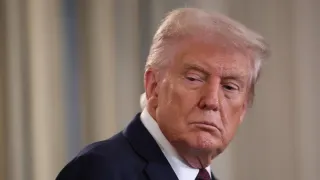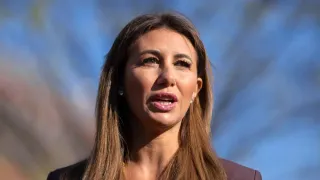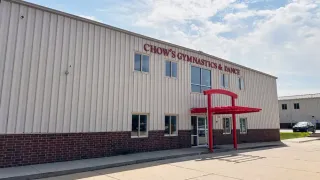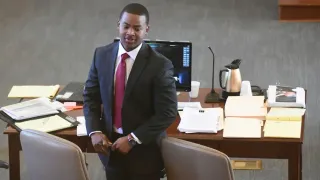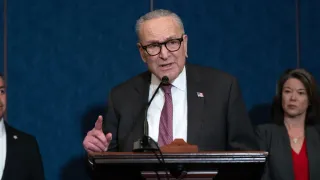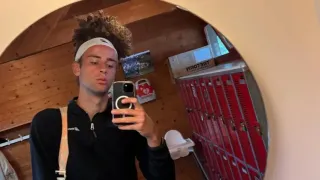
Nov 10
When a Broken Jaw Became a Rallying Cry: How a Texas Hero and His Community Stood Up for Trans Lives
READ TIME: 4 MIN.
It was the kind of Austin summer afternoon that practically begs for a dip at Barton Springs Pool: sun-soaked, queer-affirming, and filled with the easy camaraderie that can make even the biggest city feel like a village. For Jarod Adkison, a 33-year-old construction worker, it was supposed to be the tail end of a long bike ride—a quick hello to a group of women by the pool, then on his way home. But in a flash, that ordinary day unraveled into an act of violence that would reverberate through Austin’s LGBTQ+ community and far beyond.
What began as a casual encounter exploded when three men, reportedly intoxicated, noticed one woman was transgender. In a scene that remains all too familiar for trans people and their allies, the men’s tone twisted from friendly to hostile, their words turning into transphobic slurs. It didn’t stop at language: two women were thrown to the ground, and one was called “disgusting” . In that split second, Adkison made the choice that would define the coming weeks—he stepped between the attackers and their targets.
“I tried to step in defensively, to tell the guys to move on,” Adkison later recounted. “One of the guys punched me a couple of times. I wasn’t trying to fight” .
The cost for Adkison was immediate and brutal: a punch to the head knocked him unconscious, shattered his jaw, and left his ear canal filled with blood. He woke up in Dell Seton Medical Center with a concussion, a broken jawbone, and the kind of medical bills that can upend anyone’s life—especially someone whose employer doesn’t provide health insurance .
But what happened next wasn’t a story of victimhood—it was a masterclass in queer resilience and the radical generosity of chosen family. As Adkison’s parents launched a GoFundMe campaign to cover the cost of reconstructive surgery and weeks of lost wages, the community’s response was swift and overwhelming. Donations poured in, eventually topping $74,000 and sending a clear message: in the face of hate, Austin shows up for its own .
If that weren’t enough, Dr. C. J. Langevin—a local plastic surgeon—stepped forward to offer the surgery at little more than the cost of the surgical suite. “He was an amazing patient,” Langevin said. “It was pretty minimal work from my side” . By early October, Adkison was healing physically, but the emotional scars of the attack—and the community’s outpouring of support—left an even deeper impression.
For a community that knows the risks of being visible, Adkison’s story landed like a thunderclap. He didn’t just call out hate—he physically stood between violence and a transgender woman’s right to exist in public. In a world where allyship often gets reduced to social media posts or rainbow capitalism, here was a reminder that real solidarity is messy, sometimes painful, and always rooted in action.
The story echoes the urgent reality that transgender people, especially trans women, face disproportionate rates of violence and harassment—facts that are backed up by data but all too often ignored in the wider media landscape . In this moment, the community’s collective energy turned a potential tragedy into a rallying point for hope.
The transgender woman Adkison protected called him “an absolute angel” for stepping up when no one else would . But what makes Adkison’s story so powerful is his own response. He told reporters he holds no resentment toward his attackers, saying, “These are young guys, but you can’t go around sucker punching people and putting people in hospital. Honestly, I think I might have done the right thing … I would have felt awful if I had not helped out” .
The legal aftermath was swift: Austin police issued arrest warrants for the two main assailants, Joshua McKeith Bell and Matthew Robert Villanueva, charging them with aggravated assault. The case is being reviewed by the Austin Police Department’s Hate Crime Review Committee to determine if the attack should be prosecuted as a hate crime—a crucial step given the ongoing national conversation about the need for stronger protections for transgender people .
But the real legacy of this moment may be in the way it galvanized people around a simple, radical idea: that queer safety is collective, and that true allyship means putting your body, resources, and privilege on the line when it counts most.
For LGBTQ+ readers, Adkison’s story is more than a headline—it’s a call to action, a reminder that every act of courage, no matter how small or costly, contributes to the patchwork of safety that makes queer life possible. It’s also a testament to the power of showing up—not just for your own, but for anyone whose humanity is under attack.
As Austin continues to process what happened at Barton Springs Pool, one thing is clear: when hate tries to make us invisible, our communities respond by making each other seen, heard, and—yes—healed. Solidarity, in the end, is its own kind of medicine.
